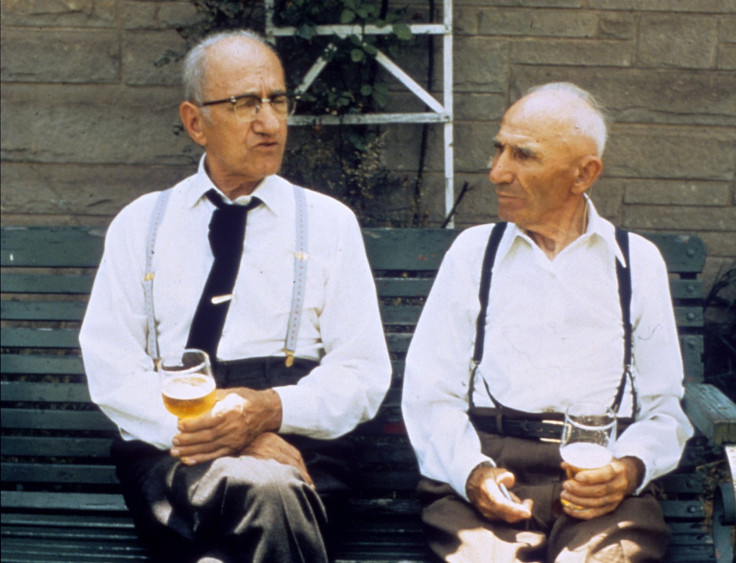Older People More Immune To Alcoholic Hangovers, Study Finds

Like a good whiskey, aging improves a drinker with time, as getting older may prevent the physical and existential pain of the hangover. A large study of Danes found that drinkers aged 60 and older experience fewer and gentler symptoms of hangovers following a drinking binge, suggesting that the malady fades with age.
But whether older people were simply more adept with avoiding the pain or whether they might develop a greater tolerance, the study did not confirm. A confluence of factors may influence one’s perception of life the day following a night of excess.
The study results say more about the effects of drinking alcohol over a lifetime, according to Richard Stephens, a psychologist at Keele University in the UK. Previous work has shown a positive relationship between the severity of the hangovers and developing alcoholism later. This relationship could be explained by a drinker's urge to soothe the pain of a hangover with a few drinks in the morning, seeking a softer landing into sobriety.
Stephens and his team of researchers found that people tend to experience fewer hangovers with age as they become less likely to develop a drinking problem. Although scientists have devoted much time and money to studying the effects of ethyl alcohol on human physiology, less scientific attention is given to the morning hangover. As many as half of drinkers whose blood alcohol level reaches 0.11 percent experience at least mild symptoms of hangover, according to prevailing research. People who smoke cigarettes only make the morning after pain worse. Yet, as many as one in four people may be immune to hangovers.
Stephens and his colleagues analyzed survey data from 52,000 people ages 18-94 in Denmark, who answered questions about their food and drink consumption, among other statistics. People over the age of 60 drank the most, averaging 15 drinks per week for men and 10 for women, although younger people engaged more often in binge drinking.
Younger drinkers were more likely to have hangover symptoms following a drinking session, with 62 percent of men ages 18-29 reporting exhaustion, compared to just 14 percent among drinkers over the age of 60. Older men were less likely than younger men to report symptoms of nausea, with 1.5 percent and 10 percent reporting the symptom, respectively. Similarly, older men were less likely to complain of next-day dizziness than younger men, with 1.5 percent and 8 percent reporting, respectively. Older drinkers also experienced stomachache at rates of 1.5 percent compared to their younger counterparts at 6.2 percent. Among women, nausea half as common among older women, with 11 percent of older women experiencing the symptom compared to 21 percent of younger women. Headaches, too, were less common as 21 percent of older women experienced them compared to 27 percent for younger women.
The age discrepancies held true even when accounting for possible confounding variables such as the amount of alcohol consumed, the frequency of binge drinking, and the amount of food eaten while drinking alcohol. As for why, Stephens wonders whether older people more prone to hangovers have simply stop drinking. If so, those left practicing the vice at older ages are those with a greater immunity to such symptoms.
However, Dr. Robert Swift, a professor psychiatry and human behavior at Brown University, suggested the lessened effects of hangover on older people might be due to lower rates of tobacco smoking, which appears to exacerbate the hangover. “The study adds a bit of knowledge about hangovers,” Swift said. ‘However, we still do not understand the cause.”
Regarding Stephens’ theory on the age discrepancy, Swift said there is no evidence suggesting that hangovers compel people to stop drinking.
Source: Tolstrup, Janne S., Stephens, Richard, Gronbeak, Morten. Alcoholism: Clinical & Experimental Research. 2013.



























